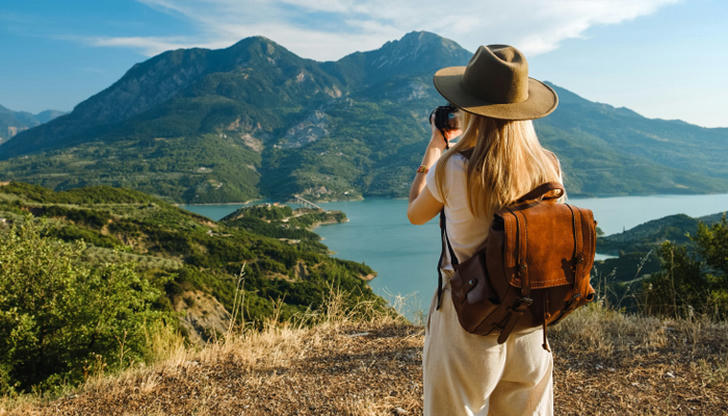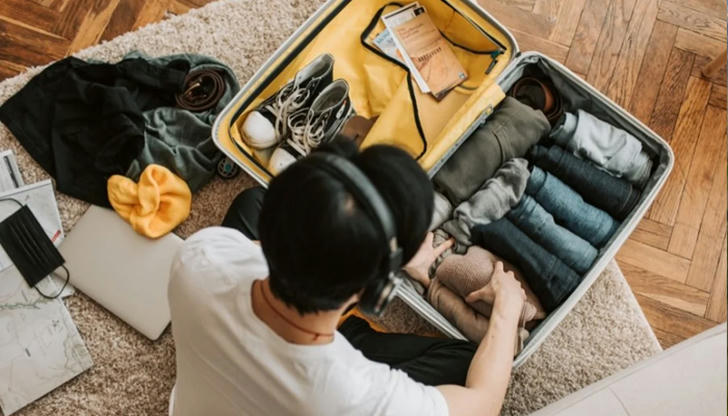Solo Travel for Beginners: Embracing Adventure and Discovering Yourself
Solo travel is an empowering experience that allows individuals to explore new destinations, embrace independence, and discover more about themselves. Whether you are looking for adventure, self-reflection, or the thrill of navigating a foreign land on your own, solo travel provides a unique and rewarding journey. This guide will help beginners prepare for their first solo trip with practical advice, tips, and safety considerations.

Choosing the Right Destination
Picking the right destination is key to ensuring a positive solo travel experience. Here are some factors to consider:
Safety: Research the safety of your chosen destination by checking travel advisories, reading reviews from other solo travelers, and looking up crime rates.
Ease of Navigation: Some cities are more tourist-friendly than others. Destinations with good public transport, English-speaking locals, and clear signage make solo travel easier.
Cost: Budgeting is crucial, especially for first-time solo travelers. Consider the cost of accommodation, food, transportation, and activities before deciding on a location.
Interests: Think about what excites you—history, beaches, adventure, or culture. Choose a place that aligns with your passions to ensure an enjoyable experience.
Popular destinations for solo travelers include Japan, Portugal, Thailand, Iceland, and Canada, all of which offer friendly environments, reliable public transportation, and plenty of attractions to explore.
Planning and Preparation
Research and Itinerary
Create a flexible itinerary: Outline must-see places and activities while leaving room for spontaneity.
Learn basic local phrases: If you're visiting a country where English isn't the primary language, learning a few essential phrases can be helpful.
Understand cultural norms: Familiarize yourself with local customs, etiquette, and laws to avoid misunderstandings.
Download helpful travel apps: Apps like Google Maps, Duolingo, and Google Translate can make your trip smoother.
Packing Essentials

Packing efficiently is important for solo travel. Consider bringing:
A high-quality backpack or suitcase with secure locks
Essential documents: Passport, travel insurance, emergency contacts
Clothing suitable for the weather and culture of the destination
A portable charger and universal travel adapter
A basic first aid kit and necessary medications
A lightweight reusable water bottle and snacks
Staying Safe While Traveling Alone
Accommodation Safety
Choose well-reviewed hotels, hostels, or Airbnb accommodations in safe neighborhoods.
Let a friend or family member know where you're staying.
Use hotel safes for valuables and be cautious about sharing your location with strangers.
Personal Safety Tips
Keep emergency contacts and local embassy information handy.
Avoid displaying expensive items like jewelry, cameras, or large amounts of cash.
Stay aware of your surroundings and trust your instincts—if something feels off, remove yourself from the situation.
Avoid walking alone at night in unfamiliar areas.
Digital Safety
Use a VPN to protect your data when using public Wi-Fi.
Enable location sharing with a trusted contact.
Back up important documents digitally in case of loss or theft.
Making the Most of Your Solo Trip

Meeting New People
Stay in hostels or join group tours to meet fellow travelers.
Use social apps like Meetup or Couchsurfing Hangouts to connect with locals.
Engage in communal activities like cooking classes or walking tours to interact with others.
Enjoying Alone Time
Visit museums, cafes, and parks at your own pace.
Keep a travel journal or blog to document your experiences.
Try new activities that push you out of your comfort zone, such as hiking, scuba diving, or taking a local dance class.
Overcoming Challenges
Solo travel isn’t without its difficulties, but overcoming these challenges is part of the journey.
Loneliness: Stay connected with loved ones through regular calls or video chats.
Navigation difficulties: Download offline maps and learn how to use public transportation.
Unexpected issues: Have backup plans and travel insurance in case of emergencies.
Conclusion
Solo travel is an enriching experience that fosters confidence, adaptability, and a sense of adventure. With careful planning, the right mindset, and a willingness to step outside your comfort zone, you can enjoy an unforgettable journey that allows you to explore the world on your terms. Whether it's your first time traveling alone or you're looking for ways to improve your solo adventures, embracing the unknown will lead to personal growth and unforgettable memories.
